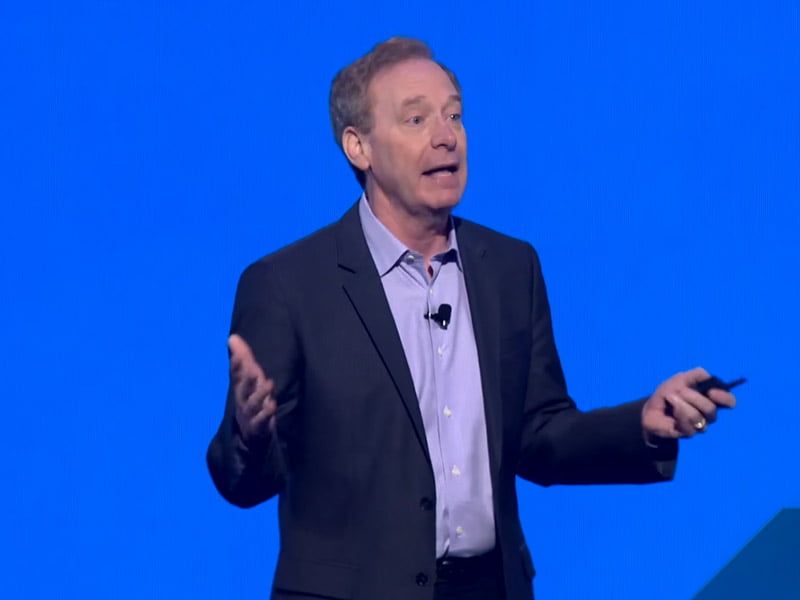The federal opposition and Greens have backed a call from tech giant Microsoft for governments around the world to regulate the use of facial recognition technology.
Microsoft president Brad Smith late last week urged governments to regulate facial recognition in order to address the “broader social ramifications and potential for abuse” with the emerging technology.
It’s a significant moment, with Microsoft being a major supplier of facial recognition technology, including to governments.

Mr Smith said governments around the world have a responsibility to ensure facial recognition technology is used safely and responsibly.
“The only effective way to manage the use of technology by a government is for the government proactively to manage this use itself. And if there are concerns about how a technology will be deployed more broadly across society, the only way to regulate this broad use is for the government to do so,” Mr Smith wrote.
This in fact is what we believe is needed today: a government initiative to regulate the proper use of facial recognition technology, informed first by a bipartisan and expert commission.”
Shadow minister for the digital economy Ed Husic has backed Microsoft’s push and called on the federal government to take a more measured approach to the rollout of facial recognition technology.
“I think taking a step back, with the types of calls we’re seeing from firms like Microsoft, is definitely worth considering. Everyone has a part to play in some shape or form,” Mr Husic told InnovationAus.com.
“Government can set the broader framework but I think you could reasonably expect a greater pressure to be placed on the private sector to explain what it is doing with the application of technology and that it’s doing it within a social licence.”
“We’re now on the threshold where people are starting to go, ‘before we race to embrace, we need to think through exactly how we’re doing it’. We’ve got to think it through,” Mr Husic said.
My big problem with the way the government has managed digital transformation is that it’s addicted to announcements and allergic to delivery,” he said.
Greens digital rights spokesperson Jordon Steele-John has also supported Microsoft’s call, saying that individual privacy needs to come first.
“The Australian Greens are incredibly concerned about the use of facial recognition technology, not only by the Australian government itself but also by private companies who have access to huge amounts of personal data in a largely unregulated space,” Senator Steele-John told InnovationAus.com.
“We know there are significant issues with facial recognition technology that is being trialled elsewhere, including racial bias and high rates of false positive identification that do not justify its use without significant regulation being put in place first to ensure that individual’s privacy is being protected and guaranteed.”
The Microsoft boss said governments from around the world have a role to play in curbing the use of facial recognition technology for unsavoury means.
“The questions…will become important public policy issues around the world, requiring active engagement by governments, academics, tech companies and civil society internationally. We need a principled approach for facial recognition technology, embodied in law, that outlasts a single administration or the important political issues of a moment,” Mr Smith said.
The Australian federal government is currently pursuing a number of facial recognition projects, with plans to implement the technology across a number of services, including with Centrelink and the new digital ID.
Earlier this year it introduced the Identity-Matching Services Bill to Parliament, legislating a new interoperability hub facilitating the exchange of biometric data between Australian jurisdictions, a new service to use facial recognition technology to identify an individual based on a photo, and an expansion of a service confirming the identity of an individual using biometrics.
The bill has the support of the Opposition. The move has been criticised by a number of civil and digital rights advocates, with the Office of the Victorian Information Commissioner raising “serious concerns”, and Civil Liberties Australia saying it will “shift Australia to a post-privacy age and into a new era of total surveillance”.
The Australian Human Rights Commission said the bill will allow for “very intrusive surveillance to be conducted in public places”.
In his post, Mr Smith acknowledged the “positive and potentially even profound” uses of facial recognition, but said there are many “more sobering” applications that governments need to address.
“Imagine a government tracking everywhere you walked over the past month without your permission or knowledge. Imagine a database of everyone who attended a political rally that constitutes the very essence of free speech,” Mr Smith said in the blog post.
“Perhaps as much as any advance, facial recognition raises a critical question: what role do we want this type of technology to play in everyday life.”
Potential regulation of facial recognition technology should look to address issues including whether its use is subject to human oversight, what accountability is in place, legal measures to prevent racial profiling, minimum performance levels, prior consent and legal rights for those that are misidentified by the technology, Mr Smith said.
Any potential regulations would need to consider how the general public is impacted by the government’s use of facial recognition technology, and what safeguards are in place, Mr Husic said.
“You’d want to go through a process of understanding how the technology will be applied in the context of government and what protections are in place to ensure everyone truly benefits from it and is protected from unintended consequences,” he said.
“[The government] needs to explain how they intend to go about the application of biometrics when weaving it into government digital platforms and give assurances to the public that it’ll be done properly and securely, and that there’s a clear benefit to the public as opposed to just generating benefit to government.”
Do you know more? Contact James Riley via Email.

